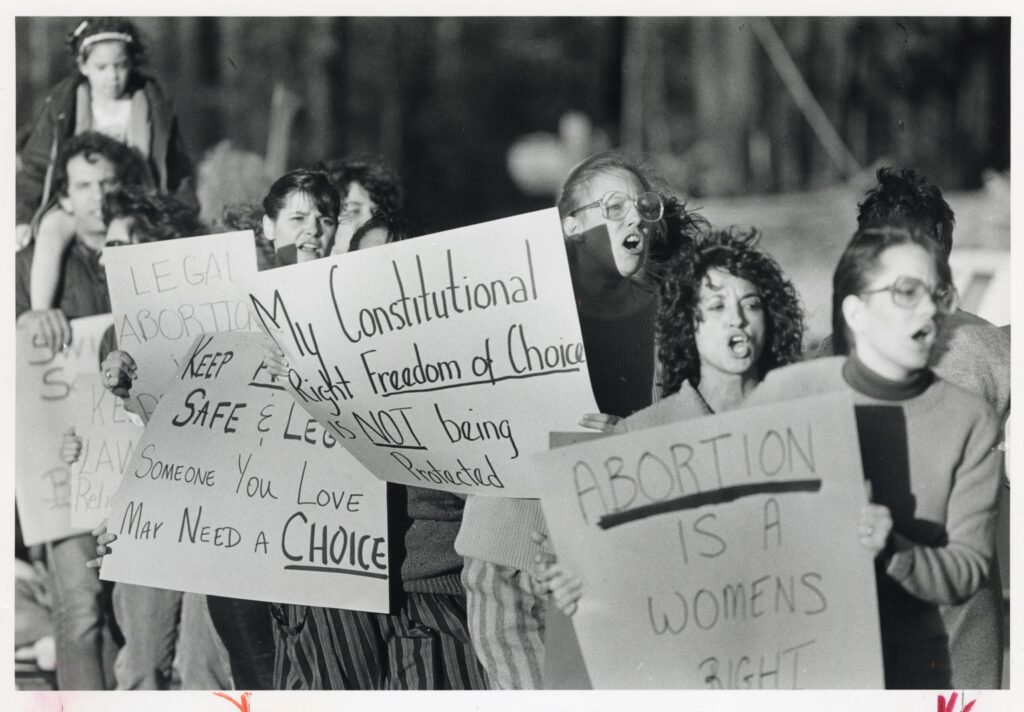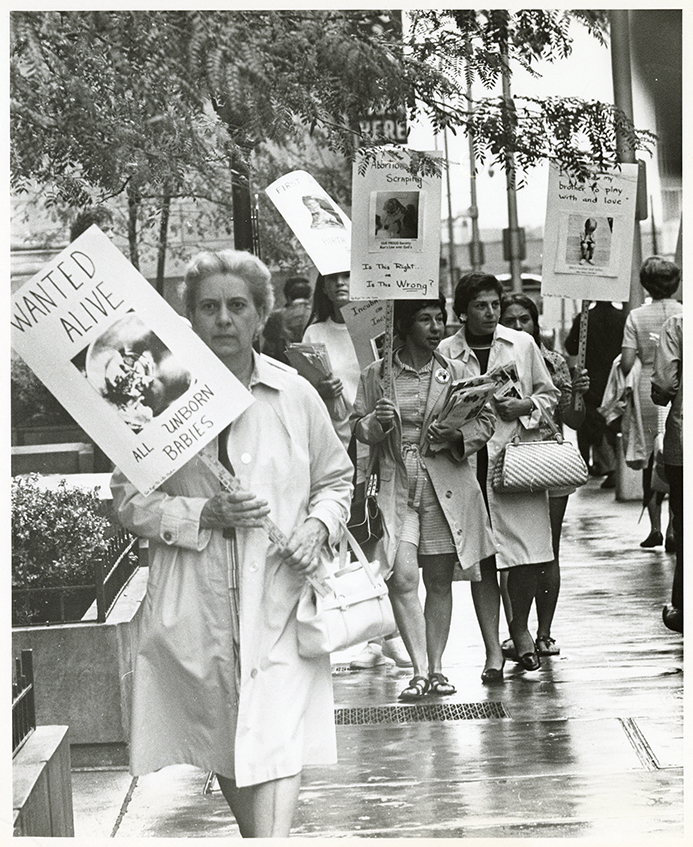Roe V. Wade
A Texas woman was denied access to an abortion in 1969, because her state criminalized abortion except in cases of saving the mother’s life; a group of Texas lawyers filed a suit on her behalf, joined by a doctor who faced criminal charges for performing abortions. In a majority opinion written by Justice Harry Blackmun, the court determined that the right to an abortion was implicitly protected by the “right to privacy” clause of the 14th amendment. Regarding the definition of “health,” in the context of allowing abortions to protect a woman’s life or health, the term was expanded to include “all factors— physical, emotional, psychological, familial, and the woman’s age— relevant to the wellbeing of the patient.”



